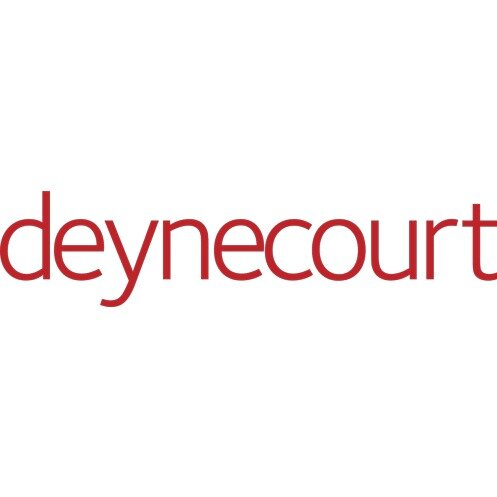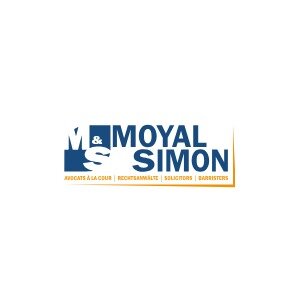Best Renewable & Alternative Energy Lawyers in Luxembourg
Share your needs with us, get contacted by law firms.
Free. Takes 2 min.
Or refine your search by selecting a city:
List of the best lawyers in Luxembourg
About Renewable & Alternative Energy Law in Luxembourg
Luxembourg has positioned itself as a leader in sustainable development and clean energy within Europe. Renewable and alternative energy law in Luxembourg covers the rules, policies, and incentives that guide the production, use, import, and export of energy sourced from renewables such as solar, wind, biomass, hydro, and geothermal sources. The country aims to increase its share of renewables in the energy mix and align with European Union targets for reducing carbon emissions and combating climate change. Legal frameworks facilitate the development, financing, and regulation of renewable energy projects, providing both opportunities and challenges for companies, investors, and individuals interested in this growing field.
Why You May Need a Lawyer
There are several situations where legal assistance is crucial in the renewable and alternative energy sector in Luxembourg. These include:
- Starting or investing in a renewable energy business or project
- Navigating licensing, permits, and authorizations for renewable installations
- Drafting and negotiating contracts related to the construction, supply, or purchase of renewable energy
- Understanding and applying for government incentives and subsidies
- Addressing land use and zoning concerns for energy installations
- Resolving disputes related to grid access or interconnection agreements
- Assessing compliance with environmental regulations and EU directives
- Mergers, acquisitions, or transfers of energy assets
- Intellectual property protection for new energy technologies
Lawyers specializing in this field can help ensure compliance, manage risks, protect interests, and facilitate the successful completion of projects.
Local Laws Overview
Luxembourg's legal landscape for renewable and alternative energy is largely shaped by both national legislation and European Union directives. Key aspects include:
- Energy Transition Law: The 2021 Law on the Organization of the Electricity Market and Promotion of Renewable Energy sets out strategies and obligations to promote renewables and decarbonization.
- Government Incentives: Various incentives and grants are available for individuals and businesses investing in renewable technologies, including feed-in tariffs, subsidies, and tax credits.
- Licensing and Permits: To develop a renewable energy project, obtaining the proper authorizations from the Ministry of Energy and other authorities is required. This covers construction, environmental impact, and grid connection.
- Green Certificates and Guarantees of Origin: These systems track and certify the renewable origin of energy produced, facilitating trade and meeting legal requirements.
- Environmental Assessments: Projects must comply with regulations on environmental and social impact, including EU Environmental Impact Assessment (EIA) requirements.
- Grid Access: Renewable energy producers must adhere to grid connection standards and regulations, and operators are generally required to provide fair and non-discriminatory access.
- EU Directives Integration: Luxembourg aligns its energy legislation closely with EU directives for renewable energy, energy efficiency, and market liberalization.
Frequently Asked Questions
What types of renewable energy are supported by Luxembourg law?
Luxembourg supports solar, wind, biomass, hydroelectric, and geothermal energy. Government incentives are in place for several types of renewable installations and technologies.
How do I obtain a permit to install solar panels on my property?
Permits must be requested from the local commune as well as relevant national authorities for larger installations. A lawyer can help ensure the application meets zoning, construction, and environmental requirements.
Are there subsidies or financial incentives for renewable energy in Luxembourg?
Yes. The government provides grants, feed-in tariffs, and tax credits for approved renewable energy projects and installations. Eligibility conditions apply.
Do commercial projects face different regulations than residential projects?
Yes. Commercial projects are subject to more detailed permitting, environmental assessments, and often more complex grid connection procedures than small, private installations.
What are Guarantees of Origin and how do they work?
Guarantees of Origin (GoOs) certify that a certain quantity of electricity was generated from renewable sources. They support transparency, help meet regulatory obligations, and can be traded.
What must be included in an environmental impact assessment?
An environmental impact assessment typically includes a description of the project, assessment of potential environmental effects, mitigation measures, and a public consultation process.
Can individuals sell surplus renewable energy back to the grid?
Yes, individuals producing renewable energy can sell surplus electricity to the national grid, subject to technical and contractual requirements set by network operators and regulators.
How are disputes over renewable energy projects resolved?
Disputes can be resolved through negotiation, mediation, arbitration, or litigation, depending on the contracts in place and the nature of the dispute. Legal advice is recommended to choose the right approach.
Is it possible to transfer or sell renewable energy installations?
Yes, ownership of installations can be transferred, but certain legal and regulatory steps must be followed, especially regarding grid connection and subsidy contracts.
What role do EU regulations play in Luxembourg's energy law?
EU directives and regulations largely shape Luxembourg’s renewable energy framework, setting targets, enforcement mechanisms, and harmonizing standards across member states.
Additional Resources
If you are seeking further information or support, consider the following resources and organizations:
- Ministry of Energy and Spatial Planning (Ministère de l’Energie et de l’Aménagement du territoire) - Oversees national renewable energy policy and implementation
- National Energy Agency (Agence de l’Energie) - Provides information on energy efficiency, project financing, and technical standards
- Luxembourg Institute of Regulation (Institut Luxembourgeois de Régulation, ILR) - Regulates the energy market and grid access
- Enovos and Creos - Main electricity suppliers and grid operators in Luxembourg, involved in most grid connection processes
- Chamber of Commerce and Chamber of Skilled Trades and Crafts - Offer business development support in the renewable sector
- Environment Agency (Administration de l'Environnement) - Responsible for environmental impact assessments and compliance
Next Steps
If you need legal advice or assistance in the field of renewable and alternative energy in Luxembourg, here is a recommended approach:
- Clearly identify your specific needs or questions, such as project development, contract review, or permit applications
- Collect all relevant documents, including property deeds, business plans, technical documentation, or correspondence with authorities
- Research and select a lawyer or law firm with experience in energy law in Luxembourg
- Schedule an initial consultation to discuss your situation and clarify the potential legal solutions
- Follow your lawyer’s guidance for filing permits, drafting contracts, or complying with regulatory requirements
- Stay informed of changes in national and EU energy laws that may impact your project or property
Early legal advice can save time, reduce risks, and increase the chances of success in your renewable energy ventures in Luxembourg.
Lawzana helps you find the best lawyers and law firms in Luxembourg through a curated and pre-screened list of qualified legal professionals. Our platform offers rankings and detailed profiles of attorneys and law firms, allowing you to compare based on practice areas, including Renewable & Alternative Energy, experience, and client feedback.
Each profile includes a description of the firm's areas of practice, client reviews, team members and partners, year of establishment, spoken languages, office locations, contact information, social media presence, and any published articles or resources. Most firms on our platform speak English and are experienced in both local and international legal matters.
Get a quote from top-rated law firms in Luxembourg — quickly, securely, and without unnecessary hassle.
Disclaimer:
The information provided on this page is for general informational purposes only and does not constitute legal advice. While we strive to ensure the accuracy and relevance of the content, legal information may change over time, and interpretations of the law can vary. You should always consult with a qualified legal professional for advice specific to your situation.
We disclaim all liability for actions taken or not taken based on the content of this page. If you believe any information is incorrect or outdated, please contact us, and we will review and update it where appropriate.
Browse renewable & alternative energy law firms by city in Luxembourg
Refine your search by selecting a city.















